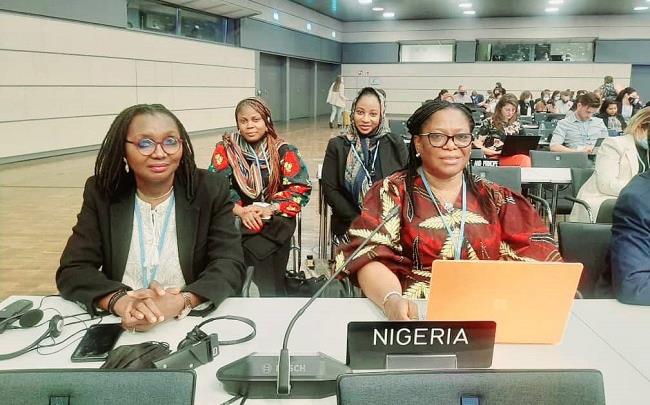As the 56th Session of the Subsidiary Body for Scientific and Technological Advice (SBSTA) and Subsidiary Body for Implementation (SBI) came to a close in Bonn on Thursday, June 16, 2022, the African Group has expressed disappointment over progress made on Loss and Damage at the conference.

Loss and Damage is a general term used in UN climate negotiations to refer to the consequences of climate change that go beyond what people can adapt to, or when options exist but a community doesn’t have the resources to access them.
“We are disappointed that we could not reach consensus on the agenda item on the Glasgow Dialogue under the SBI. We stress the importance of advancing work on clarifying financing arrangements for loss and damage. We hope we can reach an understanding on this important matter at the next session,” said the representative of the Republic of Zambia in a statement delivered on behalf of the African Group of countries, which associates itself with the statement made by the Republic of Pakistan on behalf of the Group of G77 and China.
Similarly, on the Santiago Network on Loss and Damage (SNLD), the African Group said it was disappointed with “lack of willingness to engage on this agenda item, and we hope to agree on its operationalisation at COP27”.
On Finance, African countries admit they urgently require the means to implement their ambitious NDCs, however expressed concern about the lack of focus under the work programme for the new quantified collective goal on finance.
On the work programme for urgently scaling up mitigation ambition and implementation, the group welcomes the call for submissions and the workshop to further provide inputs that will inform the pork Programme.
“The work programme should establish an enabling environment for countries to implement their ambitious NDCs, including access to support.”
On the global stocktake, the group submitted: “We believe the discussions so far have set a good basis to delve deeper at a technical level into our mandate under Article 14. At the next Technical Dialogue, we must have a comprehensive aggregate assessment that will help us to assess ways to collectively meet the goals of the Paris Agreement and fully implement it with the enabling support, in the context of Sustainable Development and on the basis of CBDR&RC, equity and best available science.”
On the Global Goal for adaptation, the group looks forward to continuing discussion with Parties in the upcoming workshops to further elaborate elements of the GGA.
“We also look forward to receiving the report at CMA 4 to give guidance on how to advance the work programme,” the submitted, even as it requested dedicated sessions at the next round of the Technical Dialogues at COP27 on cross-cutting issues and linkages, including equity and support.
It added: “Our group came prepared to engage with Parties to advance work on all important issues in a comprehensive and balanced manner for a successful outcome at COP27. The implementation of the Paris Agreement is important, and we advance work on all issues: adaptation, loss and damage, mitigation, means of implementation, the global stocktake and transparency of action and support.”
